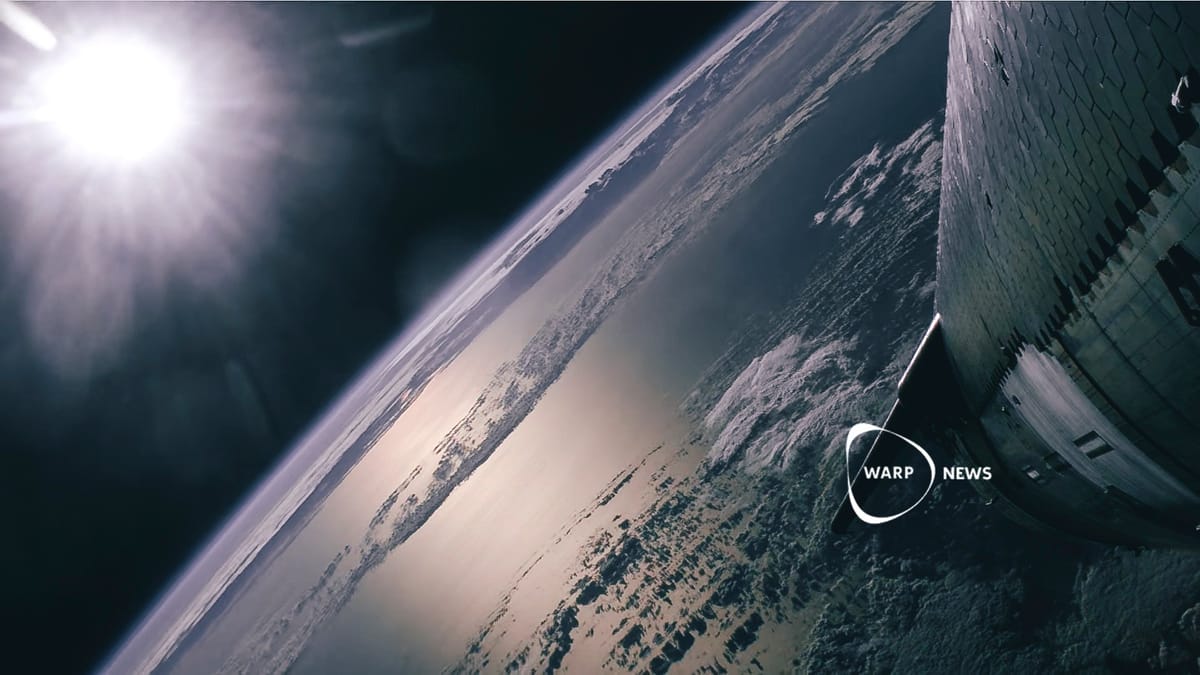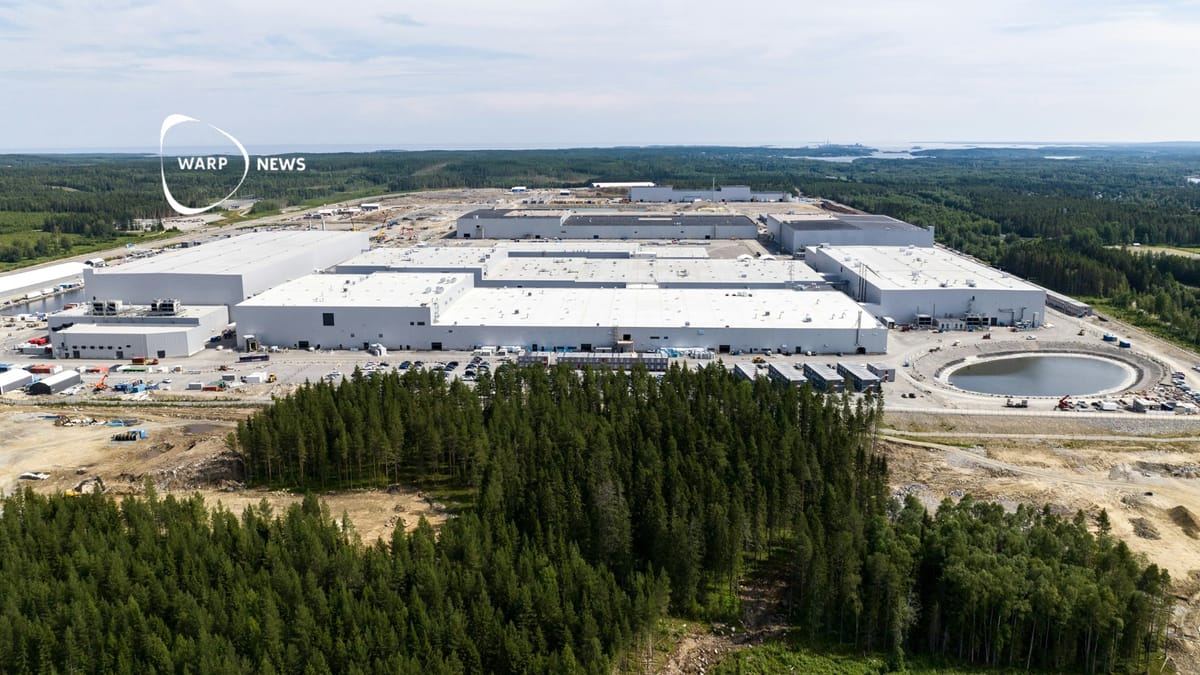
🙉 Don't get swept away by short-sighted pessimism
Many opinions are based on the tree one is staring at. Instead, take a step back and see the forest. In space, AI, and batteries, I zoom out from the chatter and try to see what's actually happening.
Share this story!
In a constant flow of news and opinions, it's easy to miss the forest for the trees.
Having a fact-based optimistic view helps to get a clearer picture of the world. As much as possible, one then tries to look beyond the negative headlines and examine facts, or as close to facts as one can get.
Here are some examples.
Spacewalks

Event: Recently, Jared Isaacman and Sarah Gillis climbed out of SpaceX's space capsule and conducted the world's first private spacewalk.
Tree: Yeah, yeah, people have been doing that for decades. Already in 1965, Soviet cosmonaut Alexei Leonov was outside the space capsule, as the first human ever.
Forest: Benn there, done that is what they said in 2010 when SpaceX reached orbit with its Falcon 9 rocket. Now Falcon 9 lands and is reused, launching a hundred times a year. Far more than any other rocket or even nation comes close to.
The reason is that space travel, mostly thanks to SpaceX, has become much less expensive. A development that we're only at the beginning of. This is what private companies do best, drive down costs and increase market size.
The fact that a private space company can carry out an entire space mission, including a spacewalk, without any government involvement or funding is a result of this. It shows that something big is happening in the space sector.
At the same time, the record for most people in orbit was broken, 19 people. That record will soon be broken and in ten years will be seen as modest.
AI predictions I

Event: Through the launch of ChatGPT, generative AI has its breakthrough with the general public.
Tree: An AI professor dismisses generative AI and claims that we're close to the bubble bursting, because ChatGPT can't solve a simple riddle: "A wolf and a cabbage need to cross a river by boat. How?"
As large language models are based on probabilities of how words fit together, it gets tricked and believes the answer is complex, requiring rowing back and forth across the river several times, instead of once. This is how these riddles with wolves and lambs are constructed in the data that the AI is trained on.
Forest: A month after the professor's post, ChatGPT o1 is released. It doesn't get fooled and immediately delivers the correct answer.
This was actually possible to achieve even in the earlier model, if you wrote the right instruction and forced ChatGPT to think step by step.
Firstly, it's easy to forget that AI tools are constantly improving. Secondly, our skill in using them plays a role in what they can accomplish and with what quality.
Green bubbles

Event: Northvolt, or any battery company, is having problems.
Tree: The fact that Battery Company X is having problems shows that batteries are a green bubble.
Forest: We're seeing massive growth in solar and wind energy, with rapidly decreasing costs, which contributes to even more growth.
Batteries are a key component for stabilizing an electrical system where wind and solar make up a large share, but also for lower electricity prices and more efficient use of the energy we produce.
The growth for batteries is also strong and prices are falling rapidly. (For a new type of energy system, check out Project Energy Society.)
Despite this growth, the remaining potential market is enormous.
However, the falling prices and the rapid expansion of manufacturing capacity are putting severe pressure on all new companies in the field. But this doesn't make batteries a bubble. The companies that survive will have the potential to become very successful.
AI predictions II

Event: The geopolitical significance of AI is increasing.
Tree: China will dominate AI because they have a clear plan and lots of data to train on.
Forest: In AI Superpowers, Kai-Fu Lee asserts that China will dominate AI. "If data is the new oil, China is the new Saudi Arabia," he writes.
There are two systems facing each other, he argues. A messy democratic system, unfocused by unwelcome power shifts. Such a system has difficulty setting up and implementing clear plans. The authoritarian system doesn't suffer from these problems and had an ambitious and clear AI plan up to 2030.
However, China forgot to include ChatGPT in its plan. Typical! Data wasn't the new oil, but ideas were.
New ideas arise most easily in countries where thought is free.
The fact that democracies are messy isn't a weakness, it's a strength. Because the most important thing in a plan is to be able to correct course.
"The internet could never have been born in China. So the next internet, the next revolution with the same impact as the internet will be born somewhere else," I wrote in 2020, two years before ChatGPT was launched.
The fact that Kai-Fu Lee was completely wrong doesn't bother him much. Now he claims that China will dominate generative AI soon...
Zoom out for a better view
If you take a few steps back from the nearest tree, you can see the forest behind it.
Instead of getting caught up in the latest opinions, zoom out instead and try to see the real trends that are ongoing, or the foundation that underlie a development.
It's no guarantee of always being right, but it greatly increases the chances.
By becoming a premium supporter, you help in the creation and sharing of fact-based optimistic news all over the world.







